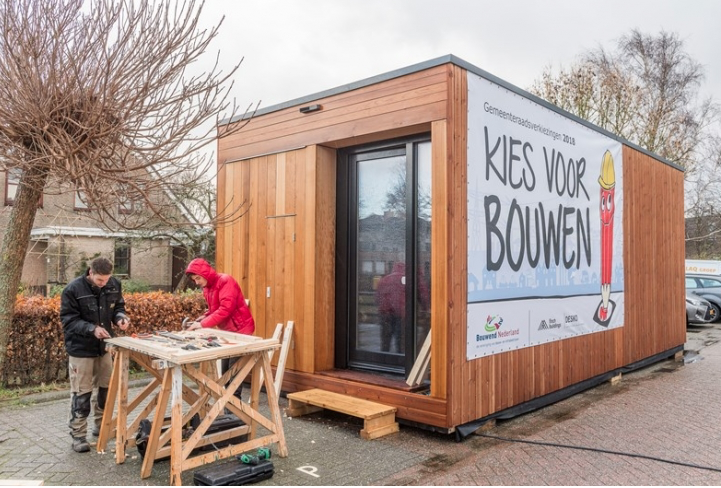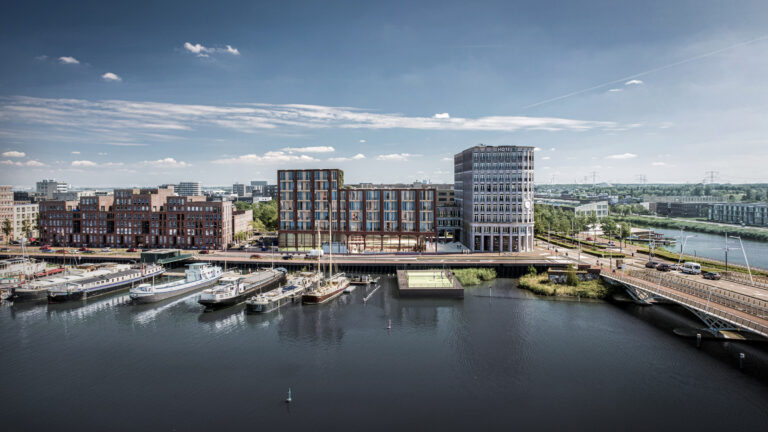A good friend has had his own company for years. He never wanted to talk about potential clients if the assignment was not yet signed. As friends we always found it funny, that superstition. Until he demonstrated that this trait is not superstition, but scientifically substantiated. The statement in a nutshell is that you are less motivated to achieve your goals when you talk about your plans, because talking about your goals already gives satisfaction.
Compare it with the ambition to get more exercise. It feels good to say that you are really going to work tonight, but there is a chance that it will remain with the ambition. People who do not or less talk about their goals, have a greater chance to achieve their goals, according to Sivers (2009). The friend's company is now internationally renowned and in any case confirms this rule. Since the end of 2016 I work for a sustainable real estate company and see surprising parallels in the corporation sector when it comes to sustainability.
We talk more and more about sustainability and circularity
At the beginning of May, it was great news that an expedition of Dutch top managers went to the North Pole to experience the consequences of climate change. After the eyes of the melting ice caps, the worries were even bigger with the Dutch companies. The government was asked to form long-term goals and to launch a Klimaatwet (NOS, 2017). No superfluous luxury, because in the same item the international director of the Norwegian Polar Institute tells that nowadays it often rains at the North Pole, that there is an increase in landslides and that last November 10 (!) degrees Warmer than normal. Earlier in the documentary Before The Flood (NGC, 2016) see that in the last 5 years alone 9 meters of ice thickness has melted away at the North Pole.
Seriously news, you would say. The newspapers are strangely not full of them. But we like to talk about it. Durability and circularity are increasingly heard concepts in our field of work. And that is good too, because within the European Union the built environment is responsible for 36% of CO2 emissions (European Commission, 2016). That is an ineffectual move. Especially when you consider that corporations with 2.3 million homes are the largest house of the country. If there is a sector that can make a real difference, then it is the corporation sector.
Fortunately, there is more and more to see and hear about sustainability objectives. The circular economy is also becoming a subject of discussion. I also notice this in practice, where I am more than regular with corporations and municipalities around the table about construction projects. I have spoken with several municipalities that want to become "the most circular municipality of the Netherlands". And also corporations are increasingly taking sustainability criteria in invitations to tender, such as shadow costs and Bengal. On the front, durability and circularity are certainly the subject of conversation.
Focused for long term savings
Unfortunately, this is also the practice Weerbarstiger. Sustainable, circular products in construction are known to be slightly more expensive in the beginning, but because of the long service life, the possibility of reuse and low maintenance costs in the future are cheaper. And let me not mention that a circular building does not have to reserve demolition costs. However, despite growing circular ambitions at housing corporations, the P of price (usually) is still leading. Short term profit goes before long term savings. Both of financial resources and of our environment.
Of course, there are also the necessary comments. Corporations have to deal with a highly regulated playing field, and must keep the homes affordable. This is not always accompanied by strong investments in sustainability. And there are also very good examples of corporations that place tens of thousands of solar panels for their tenants, or corporations where quality does outweigh price. This is a hopeful development, but it is not enough. We can only make a fist if we take the fight against climate change together. Government, corporations and the construction sector. Scale size is crucial to success. Because of all the beautiful words and ambitions it seems as if we are already on the way, but this is no more than an illusion. For the time being, tradition and initial returns are winning the future of our next generations.
The time of talking is over. If we take serious steps now to reduce the CO2 concentration (The Correspondent, 2017), it is not yet too late. In constant conditions, the Netherlands is under water by the end of this century, and the Wadden Islands have disappeared (NOS, 2017). It is therefore important to change the circumstances, to think more, to put the new generations first. A new delta plan, both literally and figuratively, is imperative. Government, municipality and corporations: Take the lead and give it a good example. It is not five for twelve, it is one for twelve.
Written by: Ernest Kuiper (Sales manager Finch buildings)
Published by: CorporatieNL (https://www.corporatienl.nl/artikelen/tijd-praten-is-voorbij/)


